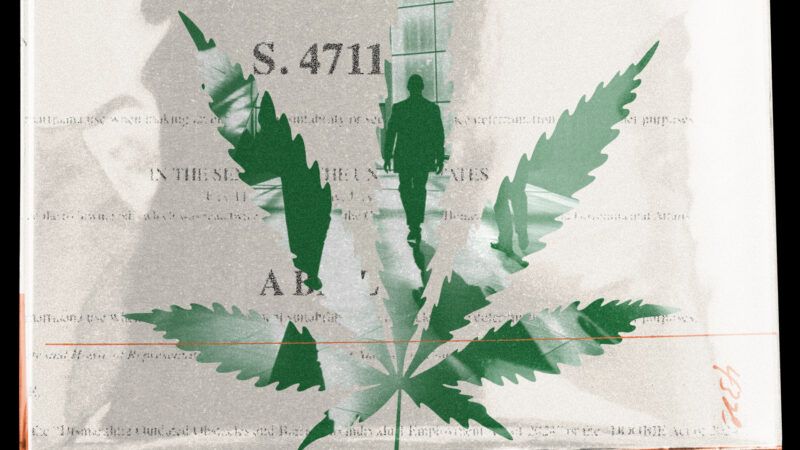The DOOBIE Act Would Limit Government Discrimination Against People Who Have Smoked Weed
Under the law, the feds couldn't deny you a job or security clearance just because you've used marijuana in the past.

There is perhaps good reason to be skeptical of legislation that comes packaged in a campy acronym. I am willing to make an exception today.
Sen. Gary Peters (D–Mich.) last week introduced a bill to prohibit the federal government from deeming an individual ineligible for employment or for a security clearance based solely on past marijuana use. The legislation is named the Dismantling Outdated Obstacles and Barriers to Individual Employment Act of 2024, otherwise known as the DOOBIE Act. Heh.
Peters' proposal seeks to bring federal law up to date with President Joe Biden's 2021 guidance instructing the Office of Personnel Management not to deny someone's employment application simply because they previously used cannabis. The drug is now legal recreationally in 24 states and permitted as medicine in an additional 14 states. In May, the Drug Enforcement Administration (DEA) proposed reclassifying marijuana from a Schedule I substance—where it sits alongside heroin, meth, and crack cocaine—to Schedule III.
"As we work to build a highly skilled federal workforce, it's crucial that the federal government modernizes its hiring practices to reflect evolving laws and societal norms," Peters said in a statement. "My bill will take the commonsense step to align federal statutes with existing agency guidance and ensure that talented individuals are not automatically disqualified from service solely due to past marijuana use. By providing this much-needed clarity for agencies and applicants, we will ensure that the federal government can recruit and retain the best and brightest to serve our nation."
Peters' legislation pertains only to past cannabis consumption and would technically not apply to an individual who currently uses the drug, as it remains illegal under federal law. You should probably not follow my lead then and try edibles for the first time while in the Netherlands on a work trip with NATO, for which I had a security clearance. Oops! (I can confirm I did not compromise our national or global security.)
Federal agencies would still be able to consider an individual's past cannabis use when evaluating their application; it just should not be the determining factor precipitating an automatic denial, according to the proposal. Under Biden's recent guidance, agencies may still take into account how recently someone indulged in marijuana, for example, or how frequently they've done so.
The bill comes as attitudes toward draconian ramifications for past drug use have continued to soften across the political aisle. President Joe Biden in 2022 issued a blanket pardon for low-level marijuana offenders, an act of clemency he expanded late last year. Former President Donald Trump, for his part, signed the FIRST STEP Act in 2018, shortening prison sentences for thousands of people, the majority of whom were drug offenders. And last July, Reps. Jamie Raskin (D–Md.) and Nancy Mace (R–S.C.) introduced a bill similar to Peters' in the House, titled the Cannabis Users' Restoration of Eligibility Act, or the CURE Act. The acronym needs work.


Show Comments (14)